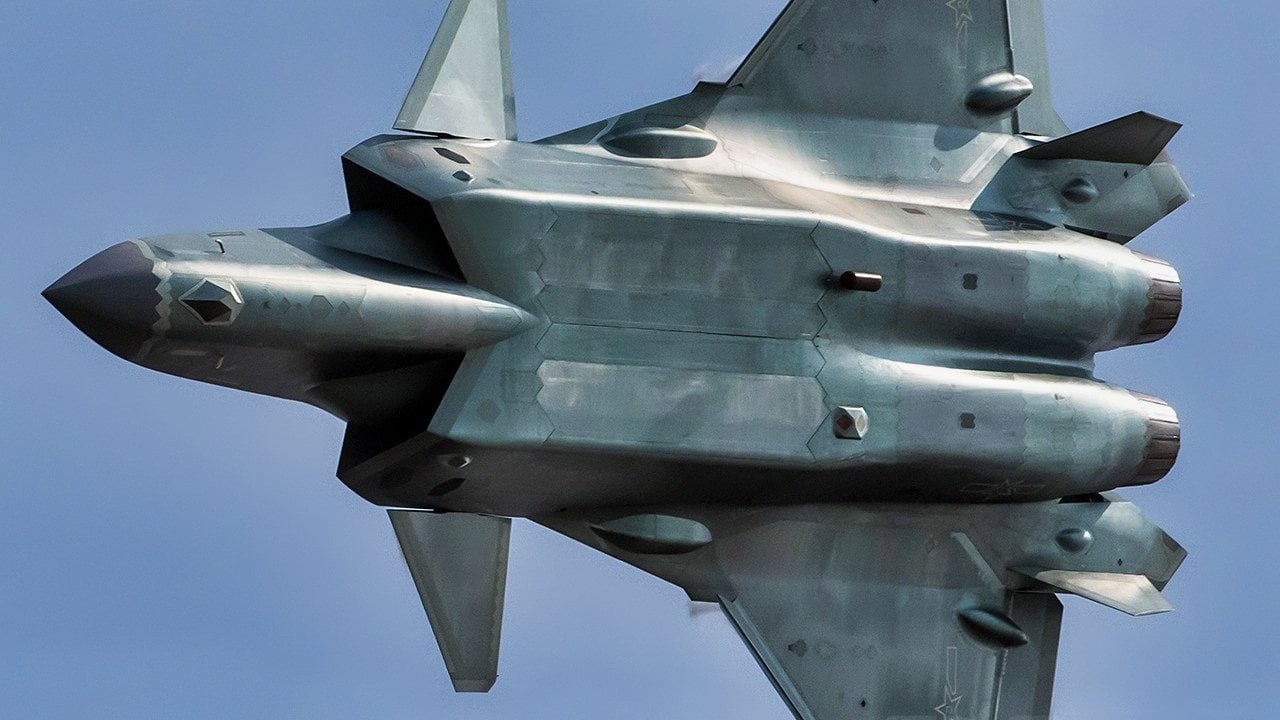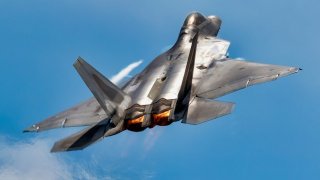China's Nightmare: What If the U.S. Military Sent Troops to Taiwan?
China’s reaction to the peacetime deployment of U.S. forces to Taiwan could get extreme. Past U.S. deployments came during a period in which the United States enjoyed presumptive conventional and nuclear superiority over the PRC. These deployments ended when the U.S. and the PRC entered their extended period of detente and friendship from the 1970s into the 2000s. Putting consequential military forces back in Taiwan could do irrevocable damage to the relationship.
Concerns over a cross-strait conflict have only grown over the past five years. President Joe Biden has chipped away at the policy of ambiguity that has long governed U.S. diplomatic relations towards Taiwan, meaning that the specifics of deterrence have come into the debate.
Deterrence is a difficult and complex thing; often we don’t know if a competitor has been deterred, or simply did not intend to do the thing that we don’t like. Sometimes a word of caution is sufficient to deter. Sometimes a promise of support is enough; sometimes a brigade and a squadron of interceptors is necessary. We have seen this dynamic play out in NATO, as the United States has steadily increased its commitments to the Baltic states as concerns over Russian aggression have grown.
The shifting stance of the Biden administration on Taiwan almost inevitably spurs the question of whether the United States eventually needs to pre-position equipment and personnel on Taiwan in order to deter a Chinese attack?
U.S. Troops to Taiwan? It Has Happened Before
The United States military has deployed troops in Taiwan in the past, albeit in far different strategic and political circumstances.
As the Chinese Communist Party and its armies rolled up mainland China in 1949, U.S. naval forces interposed themselves between Formosa and the mainland in order to prevent an invasion of the sort that captured Hainan Island. The first substantial U.S. forces deployed to the island in the mid-1950s, during a period of severe tension between the PRC and the RoC. The US military commitment on Taiwan itself maxed out at about 2,0000 in 1958 but remained in the thousands until the 1970s.
In addition to troops, the US deployed the nuclear-armed Matador cruise missile, which had a range of nearly 1000km and could reach many Chinese population centers. With the normalization of relations between Beijing and Washington in the late 1970s, the U.S. removed its remaining troops from Taiwan and trusted in a combination of naval power and diplomacy to maintain the security of the island.
The situation has changed for a variety of reasons. The expansion of Chinese naval and aerospace power has shifted the conventional military balance in Beijing’s direction, making a contested invasion at least somewhat plausible. Technological developments have tended to favor long-range precision fires, increasing China’s capacity to control access to Taiwan.
Finally, the diplomatic relationship between Beijing and Washington has deteriorated badly. In combination, these factors could make the pre-positioning of US military equipment and personnel an attractive option for the first time in over forty years.
Does China Get a Vote?
China’s reaction to the peacetime deployment of U.S. forces to Taiwan could get extreme. Past U.S. deployments came during a period in which the United States enjoyed presumptive conventional and nuclear superiority over the PRC. These deployments ended when the U.S. and the PRC entered their extended period of detente and friendship from the 1970s into the 2000s. Putting consequential military forces back in Taiwan could do irrevocable damage to the relationship.
The likelihood of a negative reaction makes the pacing and sequencing of a deployment particularly important. The news of a U.S. deployment would be self-defeating if it incurred an immediate Chinese attack on Formosa. Much will depend on context, but the establishment of a tripwire might not be a sufficient deterrent against a Beijing deeply irritated by Washington’s intervention in its relationship with Taipei. If the Biden administration or a future administration decided to do this, it would need to rapidly transition consequential military forces into Taiwan in order to forestall a Chinese attack. It would not be at all surprising in China responded with force, even if at a level of escalation lower than a full-scale invasion.
The secret transfer of forces and capabilities might seem ideal, but keeping the deployment of, say, nuclear cruise missiles to Taiwan secret from Beijing would be exceedingly difficult and virtually guaranteed to enrage China when it became public. We do, after all, have historical experience with an effort to secretly transfer nuclear missiles to an island next to continental nuclear power. Any kind of secret deployment would require extraordinary care to pull off successfully.

A U.S.-China Relationship Transformed
The deployment of US forces to Taiwan would mark a transformation in the US-China relationship. If the U.S. decided to escalate in this fashion, it should be while Washington’s attention is firmly focused on China; ideally, the Ukraine War would have ended, for example. On the upside, the pre-positioning of U.S. forces would eliminate any doubt in Beijing’s mind that invading Taiwan would start a major war. On the downside, it would risk starting a major war, as well as disrupting one of the world’s most important economic relationships.
We can only hope that a future US administration will contemplate such a move with the greatest of care.
Dr. Robert Farley has taught security and diplomacy courses at the Patterson School since 2005. He received his BS from the University of Oregon in 1997, and his Ph. D. from the University of Washington in 2004. Dr. Farley is the author of Grounded: The Case for Abolishing the United States Air Force (University Press of Kentucky, 2014), the Battleship Book (Wildside, 2016), and Patents for Power: Intellectual Property Law and the Diffusion of Military Technology (University of Chicago, 2020). He has contributed extensively to a number of journals and magazines, including the National Interest, the Diplomat: APAC, World Politics Review, and the American Prospect. Dr. Farley is also a founder and senior editor of Lawyers, Guns and Money.
Image Credit: Shutterstock.


